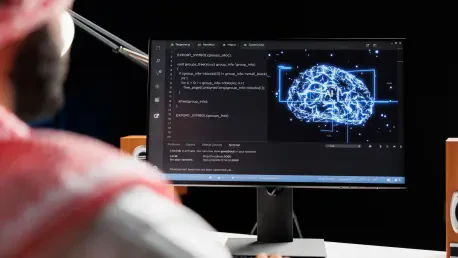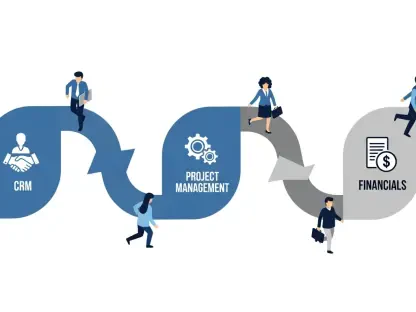Today, we’re thrilled to sit down with Anand Naidu, our resident development expert with a wealth of experience in both frontend and backend technologies. Anand brings a deep understanding of various coding languages and platforms, making him the perfect person to dive into the innovative world of Factory, a company revolutionizing software development with their Droids agents and a recent $50 million Series B funding round. In this conversation, we’ll explore how Factory is reshaping the developer experience, the unique capabilities of their Droids, the flexibility of their platform, and what the future holds for agent-native development.
How did Factory come to be, and what sets it apart in the crowded field of software development tools?
Factory was born out of a vision to transform how developers work by leveraging AI in a way that’s practical and seamless. What makes Factory unique is its focus on agent-native development through Droids—these are AI agents designed to integrate into a developer’s existing workflow rather than forcing a complete overhaul. Unlike many other tools that lock you into specific environments or models, Factory prioritizes flexibility and real-world impact, helping teams deliver faster and smarter.
Can you break down what Droids are and how they support developers in their everyday tasks?
Droids are essentially AI-powered software development agents that act like virtual team members. They assist with a wide range of tasks—from writing code to debugging, performing code reviews, and even responding to incidents. Think of them as a highly skilled colleague who’s always available to tackle repetitive or complex tasks, allowing developers to focus on higher-level problem-solving and creativity.
Factory’s Droids have topped the charts on Terminal Bench. Can you explain what Terminal Bench is and why this achievement matters so much?
Terminal Bench is a respected benchmarking standard in the industry that evaluates the performance of AI coding tools across various metrics like accuracy, speed, and adaptability. Achieving the #1 ranking means that Droids have proven themselves to be the most effective and reliable agents out there. It’s a big deal because it validates Factory’s approach and shows developers they can trust Droids with critical tasks.
One of Factory’s standout features is its flexibility. How does being agnostic to LLMs, IDEs, and interfaces benefit developers?
This flexibility is a game-changer. Being LLM-agnostic, IDE-agnostic, and interface-agnostic means developers aren’t tied to a specific language model, development environment, or way of interacting with the platform. They can use Droids in their preferred tools—whether that’s a terminal, their favorite IDE, or even through Slack. It reduces friction and lets developers work the way they’re most comfortable, which boosts productivity and adoption.
Can you paint a picture of how this kind of flexibility plays out in a real-world development scenario?
Absolutely. Imagine a developer working on a project split between a local setup and a cloud-based IDE. With Factory, they can delegate tasks to a Droid directly from either environment without switching tools or adapting to a new workflow. For instance, they might ask a Droid to debug a piece of code in their terminal while simultaneously using Slack to get insights on a related issue—all seamlessly connected. It’s about meeting developers where they are.
How does Factory’s approach to tool integration, with platforms like GitHub and Slack, help Droids mimic the behavior of experienced human engineers?
The integrations with tools like GitHub, Slack, and Jira allow Droids to tap into the full context of a team’s workflow. They can access version control history, team communications, and project timelines, which helps them build a sort of “mental model” of the organization’s codebase and processes. This makes Droids act more like seasoned engineers who understand not just the code, but the team dynamics and project goals, leading to more relevant and effective contributions.
Factory’s customers have seen incredible results, like delivering features over 30 times faster. Can you share a story of how Droids have transformed a team’s workflow?
I’ve heard of a mid-sized tech company struggling with a massive codebase migration that was projected to take months. After integrating Factory, their team used Droids to automate much of the grunt work—identifying dependencies, refactoring code, and even updating documentation. What was supposed to take three months was done in just a few days, with a 96% reduction in migration time. It was a huge relief for the team and allowed them to refocus on innovation rather than tedious tasks.
Beyond coding, Droids assist with things like code reviews and incident response. How do they ensure quality in these non-coding tasks?
Droids are trained to evaluate code against best practices and team-specific standards during reviews, often catching issues that might be missed in a rush. For incident response, they can analyze logs and historical data to suggest fixes or even implement them in real-time. They also keep documentation current by automatically updating it as code changes, which is critical for maintaining clarity and reducing onboarding time for new team members.
With the recent $50 million Series B funding, what exciting directions is Factory heading toward in terms of growth or innovation?
The funding is a massive boost for Factory’s mission. They’re planning to expand their product capabilities, making Droids even more versatile and powerful. There’s also a big push toward enterprise adoption, ensuring that large organizations can seamlessly integrate agent-native development. On top of that, they’re building out their team with top talent in engineering and research to keep pushing the boundaries of what’s possible in this space.
What is your forecast for the future of agent-native development and Factory’s role in shaping it?
I believe agent-native development is the next big leap in software engineering, much like the shift to cloud computing was a decade ago. It’s about augmenting human creativity with AI that can handle the heavy lifting. Factory is poised to lead this charge by continuing to prioritize developer experience and flexibility. I see a future where every developer works alongside agents like Droids, and Factory will likely be at the forefront, defining how this partnership evolves.









